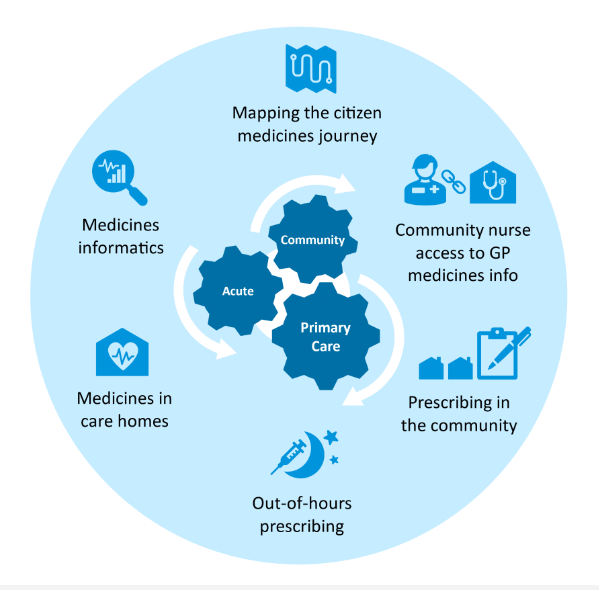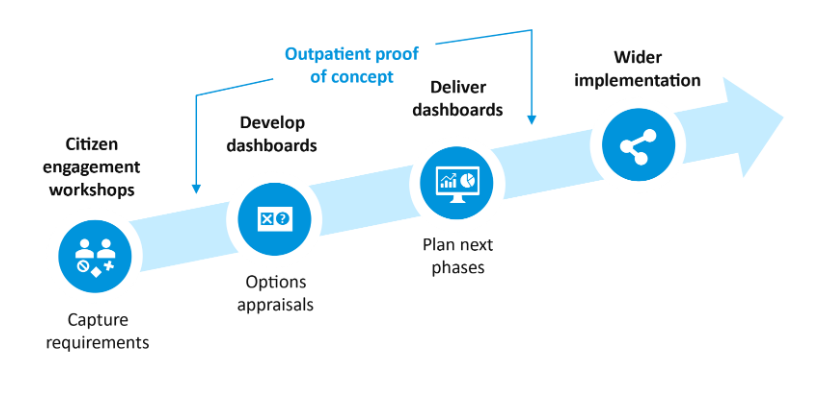The overall programme will work with patients, clinical staff and other stakeholders across care settings to improve medicines pathways. It will identify and prioritise requirements; investigate, design, build, test and deliver solutions; and review outcomes and benefits. Some aspects will be progressed within NHSGGC, while other aspects will require collaboration on a regional or national basis with other NHS Boards, Scottish Government, National Services Scotland (NSS) and other key partners and stakeholders.

Subsequent phases of the eMedicines Programme will deliver solutions which enable clinicians to maximise digital improvements in how medicines are managed across NHSGGC, for example implementing a single medication record that joins up medicines information from across primary and secondary care.
To map the citizen’s medicines journey we will engage directly with patients and carers to understand their experience of medicines processes and identify priorities for improvement. This intelligence will inform current and future work to ensure that the patient’s voice is heard.
As we replace paper processes with digital systems, the volume of available medicines data grows. To make sure this valuable information isn’t “locked away” we will create visual dashboards which clinical staff can use to support the delivery of care.
The national Digital Prescribing and Dispensing Pathways programme aims to replace the paper prescription with a digital solution in all primary and community care settings. The initial focus is GP prescribing for supply by Community Pharmacy. NHSGGC eMedicines Programme is engaging with the national programme to share learning and influence direction of travel.



